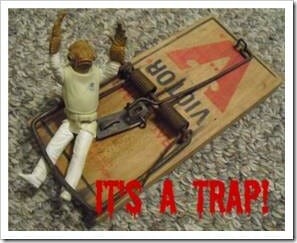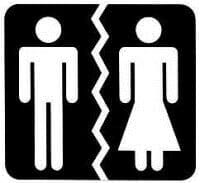
When I see couples during their relationship coaching program, the “right” trap is always there. It is not always spoken, but it underlies a lot of the conflicts. One of the partners or both of them have a strong feeling about their “rightfulness” and they cannot let it go. The problem is not just thinking that they are right, but believing the “right thing” exists, because when they sort out the first conflict by putting pressure and giving up, they get a confirmation of their “rightness” and they expect the next time to be the same – one is right and the other one gives up – a recipe for disaster.
Mira and Chris came for relationship coaching because Mira was convinced she was right and Chris was wrong. It happens a lot that one person does the booking and it sounds like this:
“Chris, why are you here?”
“Mira asked me to come”.
It was a very honest answer and it helped me find out who was seeing themselves as the “right” one in that relationship.
“OK, Mira, so why are you here?”
“I need you to explain to Chris…”
I knew that was another “right” trap.
First, I need to explain that our relationship coaching program is not mediation. It is meant to help the couple find their strengths and use them to renew their love and build their relationship on a mature and respectful foundation. If you want to get help in your relationship so the therapist can tell your partner he/she is wrong, you are trapped.
The story of our life

Many pages of our story are written without our control. Our parents, for example, are part of our story without us ever choosing them. Many things in our life enter our story without choice. No one chooses their place of birth, family’s socio-economic status, parents’ professions, siblings’ health and the list is long. Yet, all those things influence the story greatly.
I was born with physical disability. I did not choose that, but it shaped much of my attitude. I lost two children. I did not choose it, but it has made me the passionate person I am today.
Every conflict is a clash between two stories. The “right” trap is when one person is convinced their story is the right one
– Ronit Baras
In every marriage, there are many decisions to make that create the risk of a conflict and a clash of stories. It is hard to make decisions on your own and even harder when you have to agree on them with another person, especially when both of you are responsible for the lives of young children.
Gal and I disagreed on how many kids to have and the age gaps between them. My story was “I came from a family with 5 children. It was tough. My parents worked several jobs to support us and could not really give us all the attention we needed. I studied education and I want to give each of my kids individual time for about 5 years, so I want them 5 years apart”. Gal’s story was “I came from a family with 4 children. It was the best thing in the world. My parents could provide for us and my mom spent time with us, so I want to have 4 kids with 2-3 years gap between them”.
Can you see how this can become a conflict? And which one of us was right?
Mira and Chris did not have children and their conflicts revolved around two large and adorable dogs that were dear to both of them. They had many arguments about eating times, whether to let them onto their bed and whether to buy them dog food or home-cooked food. You might think that divorcing over dogs is silly, but it was a big thing that stood between them. The topic of the conflict is not so important. It is just a symptom.
Giving up is not a solution

For a while, Chris gave up, because Mira pushed her story hard enough. But giving up is not a very healthy way to handle conflicts, because no one on Earth can give up forever. It is very common in any divorce or relationship breakdown that one partner says, “I am sick and tired of giving up”. When someone gets to this point in the relationship, it is very hard to talk sense into them, because in their story, they have reached the limit of giving up, they are sick and tired of it and, like it takes time to recover from sickness, it will take time to recover from feeling used.
Mira’s trap was not only that she was convinced her point of view/story/reasons were the right ones, she did not allow any space for Chris’ point of view /story/reasons. She would say firmly, “Of course we have to let them into our bed. Why else would you have dogs?” For her, there was only one story that would lead everyone to the same conclusion – at night, the dogs must sleep in bed together with the couple.
All the time they discussed things in my presence, she was surprised Chris “did not understand what needed to be done”. Her thoughts, feelings, beliefs and ideas were so obvious to her, she really did not consider that any other story, belief or thought was possible. The reason they considered divorce was not only that Mira wanted me to “tell him”, but also that Chris was “sick and tired” and understood that always giving up was not sustainable.
Read the signs
If you have a conflict with your partner and you are convinced you are right and he/she is wrong, you are headed for a breakdown.
If you have a conflict and you think that giving up is a solution, you are headed for breakdown.
You may be wondering what kind of a relationship it is that “giving up” is not part of it. Relationships involve give-and-take and we can never get everything we want. Is the alternative to fight all the time?

When Gal and I were thinking of having kids, I wanted kids in the last year of my diploma so I could spend time with my new baby during my last year of the degree, which was supposed to have only two courses. Gal wanted it a year after we both finished our degrees. There were two years gap between our wants. My wants had all the right reasons and Gal wants had all the right reasons. We compromised on the middle. It wasn’t perfect for me, wasn’t perfect for Gal but we didn’t get into “My story and my reasons and my philosophy and my fears are more important than yours”
When Mira and Chris argued, underneath every conversation was the question “Whose story is more important?” In their case, as in many other situations, since Mira was the main provider and Chris was struggling with his new business, both of them felt her story was more important. This is a very dangerous zone, because couples that give more weight to the main provider are not equal in their decision-making and this may be a risky pattern in their married life.
During their relationship coaching, I helped Chris and Mira understand that when we push the other person to accept our story, our story does not become theirs and we jeopardize our relationship. They realized that when we give up and do not express our story, it does not cease to exist and affect our life and we jeopardize our relationship.
When I was a kid, there was a road safety campaign with the slogan “On the road, don’t be right, be smart”. It was a great campaign, because many years later, I can still remember it when I drive. Even if there is a green light, I slow down through junctions. Even when I have the right of way, I let other cars merge and exit car parks. I think this slogan made me a safer driver. In marriage, this slogan is very appropriate.
In marriage, don’t be right, be smart
– Ronit Baras
It is important in every marriage to read the signs leading to divorce. No one gets up in the morning and decides to divorce without going in that direction for a while. Arguments are a sign that something is wrong in the relationship. Do not confuse arguments with disagreements. Not every argument is a sign you are going to break up, but if one or both of you think you spend more time arguing than enjoying each other’s company, it is a sign that something has to be done to stop this deterioration.
How to save your marriage

Ask! Show interest in your partner’s story. I was convinced that bringing kids 5 years apart is the right thing. I had a huge backup of reasons, but when I listened to Gal’s story, I realized that my story was just as right as his story was. When you accept that in every argument, it is possible for both sides to be right, you are on the right track to saving your marriage.
Happy relationships,
Ronit
This post is part of the series Save Your Marriage:
- Self-Regulation in Your Marriage
- How to Save Yourself from Divorce
- Marriage and Divorce Statistics
- The Marriage Institution
- Marriage is the Foundation of Families
- The Unpleasant Side of Divorce
- How to Get Things Wrong in a Marriage
- Marriage and Self Talk
- More About Self Talk
- Facts vs. Meaning in Marriage
- All Men Are… All Women Are…
- When Two Do Not Become One
- Marriage and Money
- Be Your Partner’s Best Friend
- Relationship Between Two Onions
- The Greatest Gift: Stay Together
- Marriage of Singles
- The "Right" Trap
- The Intention Trap
- Best Marriage Quotes that Will Change Your Life
- 10 Rules for Civilized Dialogue
- 10 Tips for Re-Building Trust
- The King and His Servants
- The Nitpicker
- Expressing Feelings in a Marriage
- Don’t Be On Guard
- Don’t Clam Up
- Have Good Sex to Save Your Marriage
- Trust (or The Boy Who Cried Wolf)
- Emergency Relationship Coaching Essentials
- Save Your Marriage with Better Time Management
- Choice Theory Can Save Your Marriage
- How to Have a Hot Relationship










